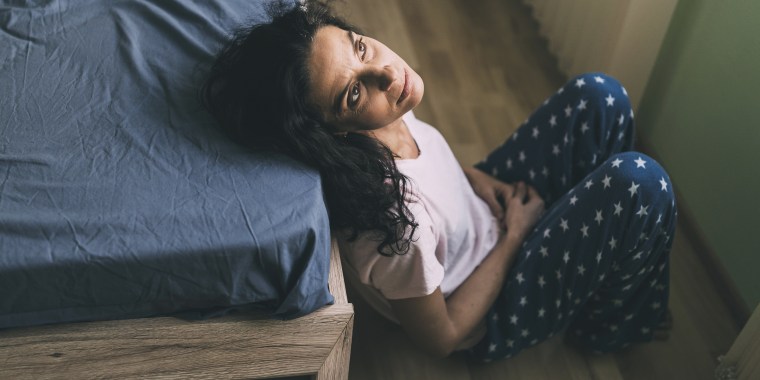Though none of us is directly responsible for the global pandemic or its repercussions, we seem to be feeling pretty guilty about it, in one way or another.
“Guilt is present in almost every patient encounter I have right now,” says Alexandra Finkel, licensed clinical social worker. “It is being both overtly discussed, as in clients saying ‘I feel so guilty for being upset when I am so fortunate’ and also showing up in more subtle ways, as in ‘I'm not doing enough’.”
Valerie Jencks, a licensed marriage and family therapist, notes a spike in “guilt of privilege”, adding: “Clients are experiencing shame around not experiencing the same suffering as others.”
Alisa Kamis-Brinda, a licensed clinical social worker, has patients “feeling guilty that they are struggling with quarantine, because they are healthy; [because they] don’t have loved ones who are sick or have died, and still have a job. They know others are struggling with bigger issues and they feel bad for having a tough time with being unable to go outside, or socialize in person or having to cancel a vacation or graduation.”
What purpose does this guilt serve, if any, and how can we cope with it?
Guilt is normal — but it easily gets out of hand
First, it’s worth noting that guilt is normal and can actually be a good thing.
“Guilt is extremely normal, especially in times of stress,” says Finkel. “It is an internal reminder that there is a wrong that needs to be addressed. Guilt can be productive when it helps us to reconcile a wrongdoing and attend to the feelings of the person we harmed. For example, if guilt arises after a person says something hurtful to a person she loves, that is a healthy response that helps the person to realize that she might need to offer an apology or make a repair.”
But guilt can easily go awry and become unhealthy. This happens when “guilt is present when there is no wrongdoing; when it discounts the positive and when it persists over time,” Finkel says. “The guilt that is being expressed in many of these examples may come from a deeper place of shame. Shame is a painful feeling that relates to the way we view and feel about ourselves. Engrained feelings of shame can cause damage to the way we view ourselves and the way we see the world.”
So why do we have guilt right now if we didn’t actually hurt anybody? On one hand we must remember that stress response factor guilt taps into. But we also might be conditioned to feel guilty, to some extent.
“If our parents or grandparents lived through the Great Depression, the Holocaust, or other traumatic experiences, and reminded us of that and referred to us as ‘unappreciative’ or ‘ungrateful’ of all that we had, this may be a contributing factor,” says Arlene Englander, a licensed clinical social worker.
Additionally, the pandemic has shined a harsh light on our societal inequities and where we each stand within that sociological framework.
“Sheltering in place seems to be amplifying economic disparities and causing guilt on both sides of the fence,” says Jencks.
4 strategies to deal with constant feelings of guilt
1. Let yourself want what you want
Psychiatrist Claire Brandon says people have started to limit themselves, deciding what's reasonable and not reasonable to wish for or need right now. “If they have a job they hate, they immediately feel that they must caveat that with, ‘But I’m lucky to have a job at all.’ These things are on parallel tracks and are not mutually exclusive to each other. Saying you have no right to be stressed isn’t going to help you feel better or help you support others.”
2. Ditch the ‘shoulds’
Guilt thrives in “shoulds”, as in “I should be exercising more.” Come at your goals from an angle of acceptance.
“When we use should statements, we automatically invoke guilt by assuming we are not good enough as is,” says Finkel. “An excellent way to reframe is to normalize and validate your own thoughts [by saying] ‘It is normal to feel guilt in this situation. It makes sense that I am feeling this way’.”
3. Take action
“Even though we can't stop the pandemic singlehandedly, we can take steps to protect ourselves and others to slow the spread,” says Sarah Gray, a clinical psychologist. “We can donate money, reach out to neighbors and check in on people we haven't heard from in a while. We can contact our legislators to make our voice heard in policy decisions that can have important outcomes. We can be kind to the essential workers and community members we may be in contact with, even if it's just by giving a nod as we pass by, six feet apart.”
4. Offer yourself compassion
“Placing a hand on your heart and offering yourself compassion can be a powerful way to help dissipate guilt,” says Finkel. “Say to yourself, ‘This is difficult, and I am doing the best I can. I deserve good things. I am loved and I am worthy of the love I receive.’”


